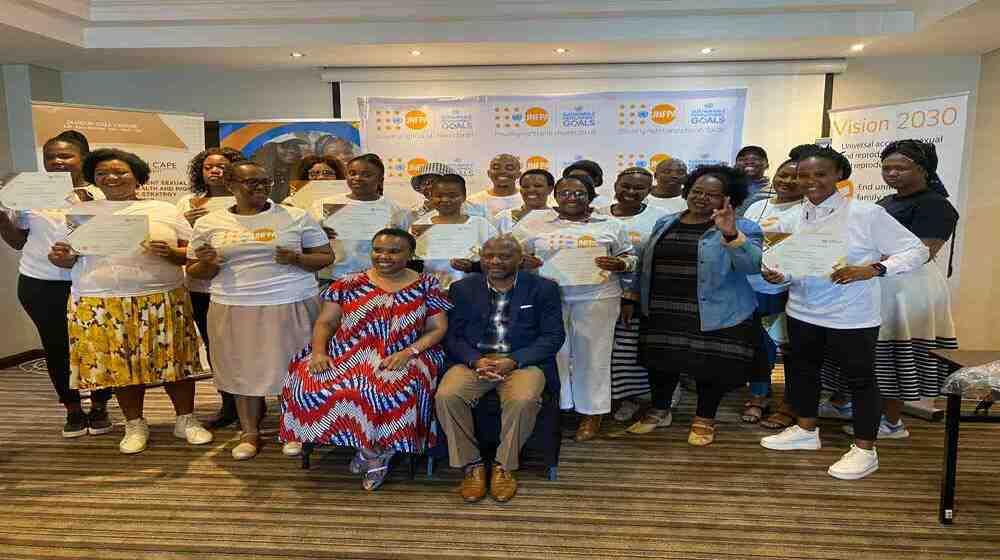Supporting the Department of Social Development, the training was unique in its approach as it focused training on engaging a cohort of trainees and workers on key Adolescent Sexual and Reproductive Health (ASRH) issues affecting them such as menstrual health and hygiene, HIV prevention & condom use, and social norms & positive masculinity. The training kicked off with an introduction of the EPWP, highlighting its objectives and emphasizing the importance of equipping workers with the necessary skills and knowledge to contribute positively and meaningfully to their communities on key ASRH issues.
YAP members, Sinoxolo Cakata and Luyolo Dwesi, hailed the youth-centric approach to the training to better address ASRH issues, while the department acknowledged the partnership with UNFPA through working with UNFPA’s flagship youth programme, the Safeguard Young People programme.
The three-day training was engaging with the first day of the training dedicated to menstrual health and hygiene. A dialogue about the biological aspects of menstruation and debunking myths and misconceptions proved to be educational and informative. The session was interactive, encouraging participants to ask questions and share their experiences. This open dialogue was aimed at normalizing menstruation, a topic often shrouded in stigma and taboos! A highlight of the training was the discussion on social norms and the promotion of positive masculinities.
YAP members dissected the topic of harmful effects of toxic masculinity, such as violence, aggression, and suppression of emotions. They introduced the concept of positive masculinity, which encourages men to express their emotions, respect women, and reject gender stereotypes. The aim of this session was to challenge traditional gender norms and promote a healthier, more inclusive understanding of masculinity. The members also focused on gender equality where they were able to discuss the importance of equal opportunities and rights for all genders. They highlighted the role of EPWP workers as agents of change within their communities in promoting gender equality within their communities, emphasizing the need for equal representation, respect, and opportunities for all. The session concluded with a commitment from the participants to promote gender equality in their personal and professional lives.
The training program was a significant step towards empowering EPWP workers to address ASRH issues within their communities. The interactive nature of the sessions encouraged participants to engage, ask questions, and share their experiences, fostering a safe and open environment for learning!


